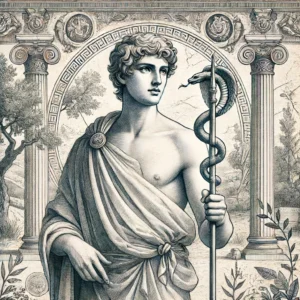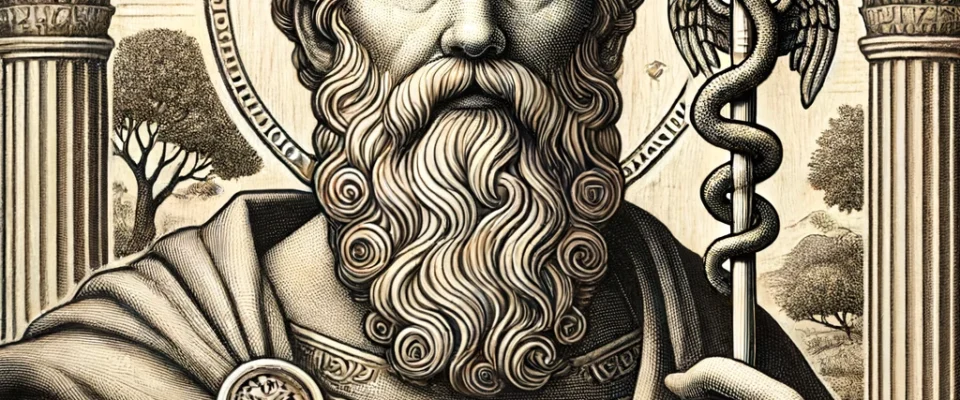Asclepius is the god of medicine and healing in Greek mythology. He is one of the most revered deities for his ability to cure illnesses and is considered the founder of the medical profession. Here are some detailed facts about Asclepius:
- Origins and Family:
- Asclepius is the son of Apollo and Coronis, a mortal woman.
- He has many children, including two famous daughters: Hygieia (the goddess of hygiene) and Panacea (the goddess of universal remedy).
- Roles and Symbols:
- God of Medicine and Healing: Asclepius is known for his ability to heal all diseases and even revive the dead. He is worshipped as the god of medicine, and the medical profession is believed to have been founded by him.
- Symbol: The symbol of Asclepius is the Rod of Asclepius, a staff entwined with a serpent. This symbol is still widely used today in medicine and pharmacy.

- Famous Myths:
- Birth and Life: Asclepius’s mother, Coronis, was killed for being unfaithful to Apollo. As she died, Apollo saved the unborn child from her womb and named him Asclepius. He was then taught by the centaur Chiron, who imparted knowledge of medicine and healing to him.
- Ability to Revive the Dead: Asclepius was renowned for his ability to bring the dead back to life, which angered Hades, the god of the underworld, as it reduced the number of souls in the underworld. Eventually, Zeus killed Asclepius with a thunderbolt to prevent him from disrupting the natural order of life and death.
- Ascension to Godhood: After Asclepius’s death, Apollo and other gods persuaded Zeus to allow Asclepius to ascend to Olympus and become a god.
- Temples and Festivals:
- Asclepius was widely worshipped in many temples, the most famous being the Temple of Asclepius at Epidaurus, a major center for healing and worship in ancient Greece.
- The Asclepieia festival was held annually in his honor, featuring healing rituals and athletic competitions.
Asclepius is not only a god of medicine in Greek mythology but also a symbol of healing and hope, revered for centuries and still having a profound influence on modern medicine and culture.

